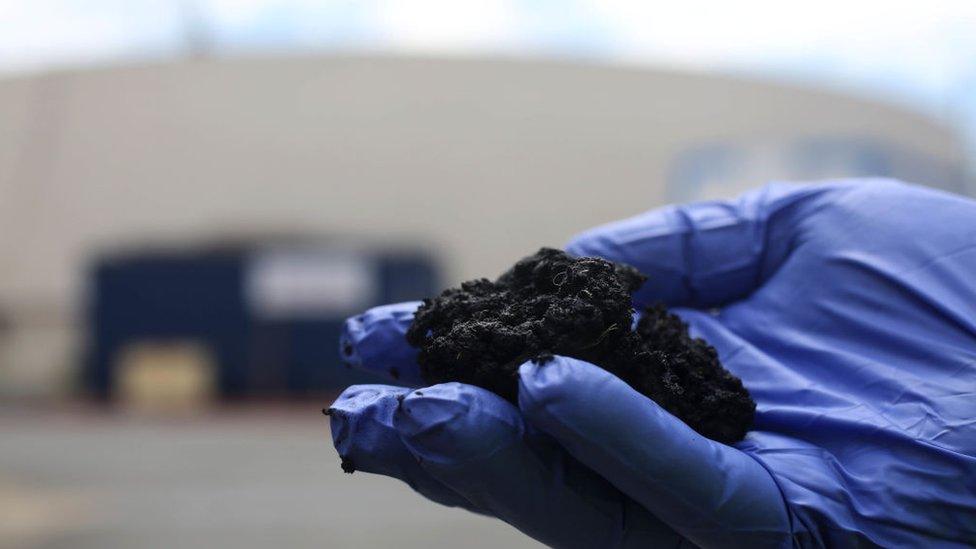Farming: Why are farmers using human poo fertiliser?
- Published
- comments

Why are farmers using human poo as a fertiliser?
Have you ever stepped outside your house and noticed a horrible smell? Well, you can't blame your dog on this one - it might be human poo spread onto fields!
Local people from Cirencester, a town in the south of England, recently complained about the horrible smell that seemed to cover the whole town.
This turned out to be biosolids, something that farmers spread across fields to help fertilise soil, and you guessed it, it's made from human poo!
Countess Bathurst, of Cirencester Park, revealed why the town has such a horrid smell. Writing on social media, she said: "The spreading was organised for when there was an easterly wind which would take the odour away from the town, frustratingly the wind dropped in the night."
Make sure you scroll down and take our special poo-themed quiz!
Farmers sometimes use poo to help fertilise their crops
Why is human poo used as a fertiliser?
Human poo can be used as a compost to help fertilise soil so that crops can grow - the product is known as biosolids.
Biosolids in the soil will provide nutrients and organic materials for the crops and plants to absorb, such as nitrates and phosphates.
An unfortunate downside to using biosolids in soil is the smell that comes with it - winds can carry the foul smell into towns, and it can linger for a few days.
Bisolids don't look like poo, but they definitely smell like it!
How are biosolids made from poo?
Human waste is recovered from water treatment works and the organic material they collect is known as sewage sludge.
Don't worry - the waste is searched for harmful materials and the water is removed, leaving only the biosolids.
Any sewage sludge that is being sent to be used as biosolids must be tested for heavy metals such as mercury, zinc, and copper.
Each year, a massive 3.5 million tonnes of treated wastewater is applied to land in the UK.
If you cannot see the interactive activity on this page, click here.
- Published10 July 2021
- Published19 May 2021
- Published21 September 2021
